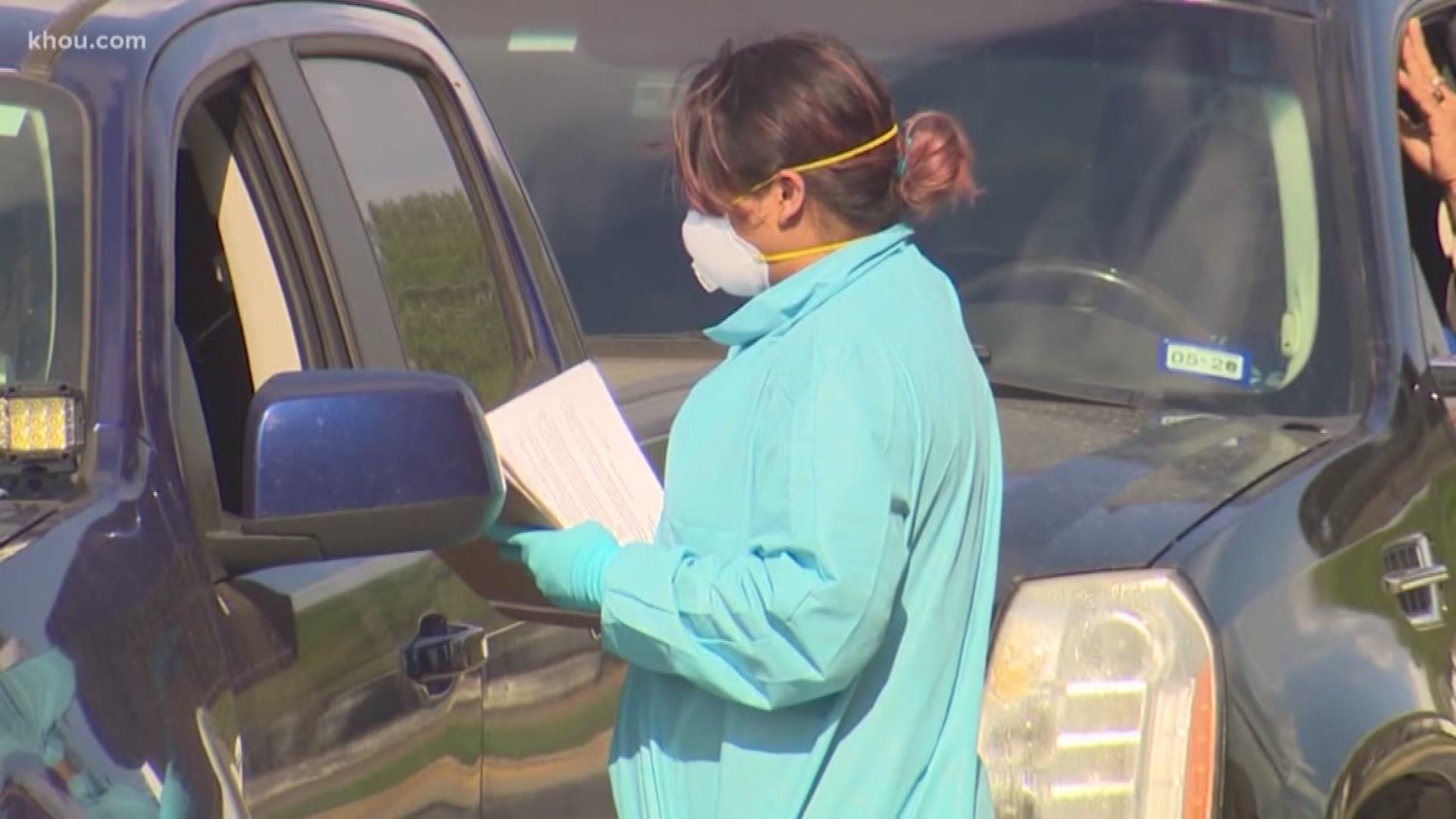HOUSTON — Almost two weeks after being tested, people who were screened for COVID-19 at private drive-thru testing sites along Hillcroft Avenue are finally getting their results back.
Testing for the virus has been problematic from the beginning and delayed processing has made matters worse.
Sara Van Tuerenhout was near the front of the line as cars wrapped around the block two weeks ago along Hillcroft where people waiting in their vehicles to have their noses swabbed.
Van Tuerenhout had been traveling on planes for days on her way home from studying abroad in Spain.
"Officially two weeks tomorrow," Van Tuerenhout said. "They called me and said, 'You’re negative,' and let me on my way.”
Like many others, it has been a long wait for Van Tuerenhout.
"It was very isolating being confined to the house," she said.
She said Quest Diagnostics processed the tests.
We asked Quest if it’s even worth it to get a test if you have to wait two weeks for the results. We’re still waiting to hear back.
Quest reports that is is able to process 30,000 COVID-19 tests a day across the country, in an emailed statement sent last week.
"I feel like a lot of people could be spreading it inadvertently because they’re waiting all this time or they could be stuck in their house, or they’re living alone and they don’t feel comfortable leaving the house because they don’t know," Van Tuerenhout said. "It’s just giving a lot of people uncertainty as to what to do with their day and live their day to day life."
Not all tests have been taking that long to process.
Many Houston-area hospitals have their own labs on-site and can return results for patients within hours.
New rapid tests from Abbott Laboratories will reportedly be released later this week and can return results within minutes.
Coronavirus symptoms
The symptoms of coronavirus can be similar to the flu or a bad cold. Symptoms include a fever, cough and shortness of breath, according to the Centers for Disease Control. Some patients also have nausea, body aches, headaches and stomach issues. Losing your sense of taste and/or smell can also be an early warning sign.
Most healthy people will have mild symptoms. A study of more than 72,000 patients by the Centers for Disease Control in China showed 80 percent of the cases there were mild.
But infections can cause pneumonia, severe acute respiratory syndrome, kidney failure and even death, according to the World Health Organization. Older people with underlying health conditions are most at risk for becoming seriously ill. However, U.S. experts are seeing a significant number of younger people being hospitalized, including some in ICU.
The CDC believes symptoms may appear anywhere from two to 14 days after being exposed.
Human coronaviruses are usually spread through...
- The air by coughing or sneezing
- Close personal contact, such as touching or shaking hands
- Touching an object or surface with the virus on it, then touching your mouth, nose or eyes before washing your hands.
Help stop the spread of coronavirus
- Stay home when you are sick.
- Eat and sleep separately from your family members
- Use different utensils and dishes
- Cover your cough or sneeze with your arm, not your hand.
- If you use a tissue, throw it in the trash.
- Follow social distancing
Lower your risk
- Wash your hands often with soap and water for at least 20 seconds. If soap and water are not available, use an alcohol-based hand sanitizer.
- Avoid touching your eyes, nose, and mouth with unwashed hands.
- Avoid close contact with people who are sick.
- Clean and disinfect frequently touched objects and surfaces.
- If you are 60 or over and have an underlying health condition such as cardiovascular disease, diabetes or respiratory illnesses like asthma or COPD, the World Health Organization advises you to try to avoid crowds or places where you might interact with people who are sick.
Get complete coverage of the coronavirus by texting 'FACTS' to 713-526-1111.

